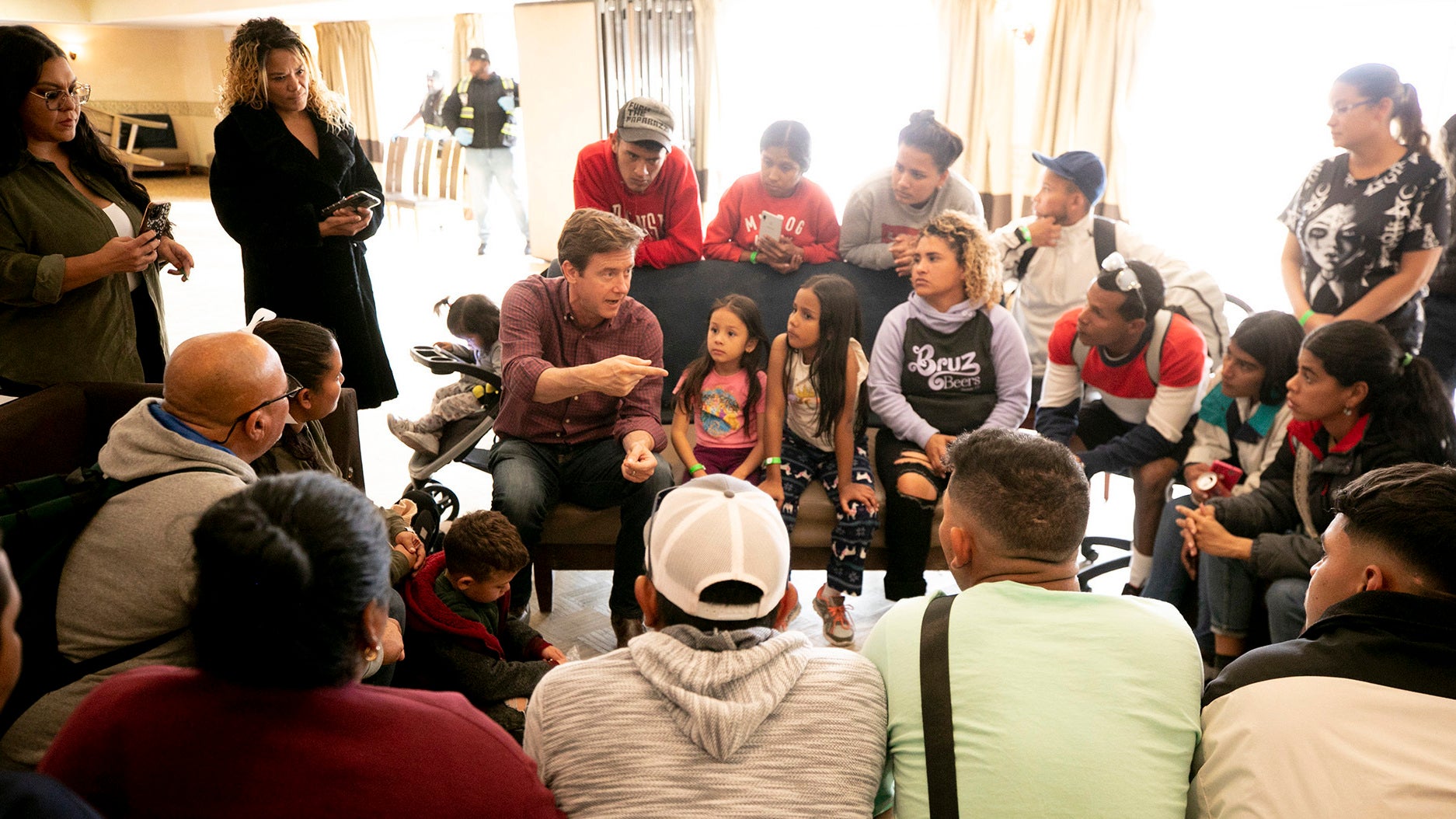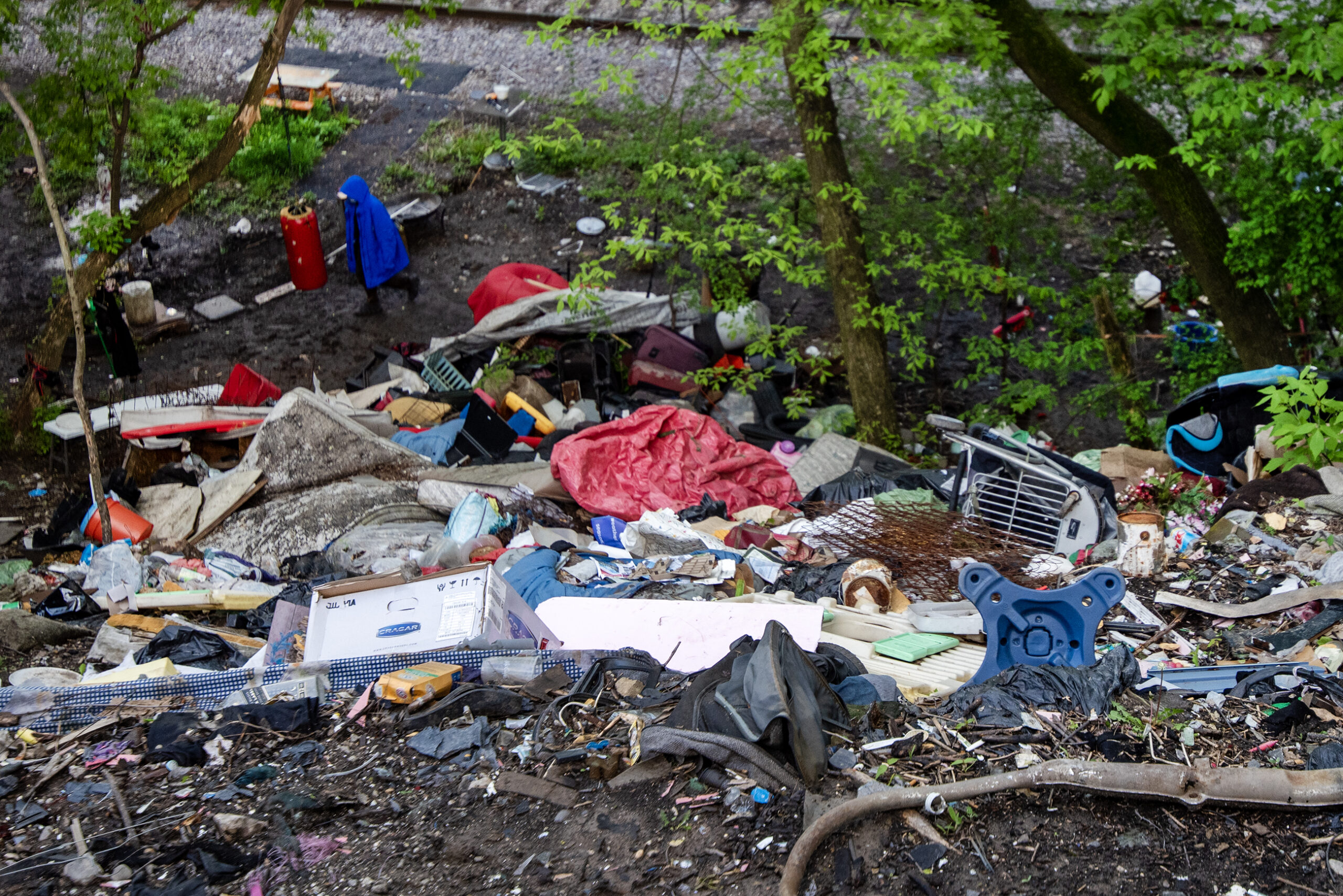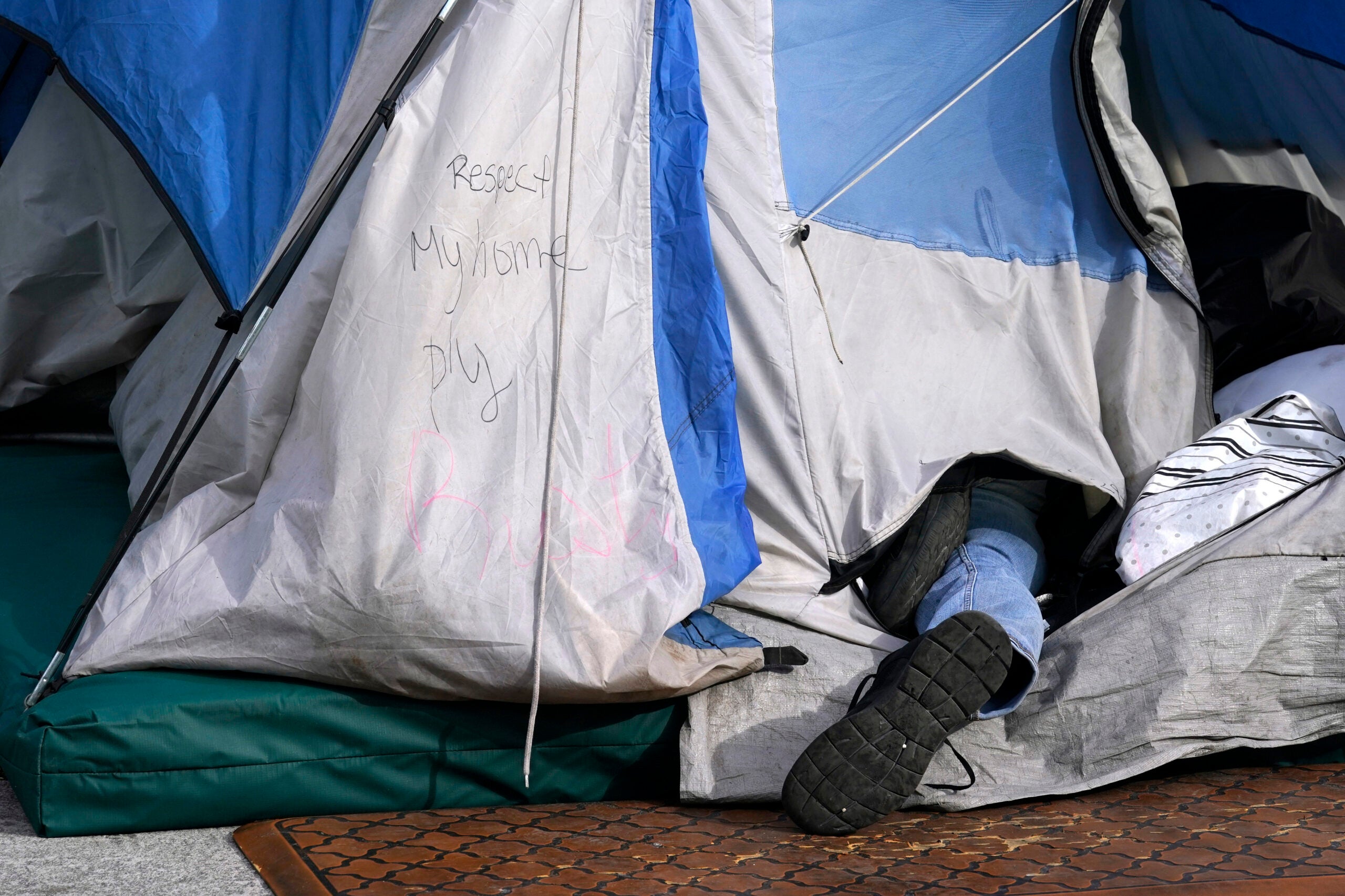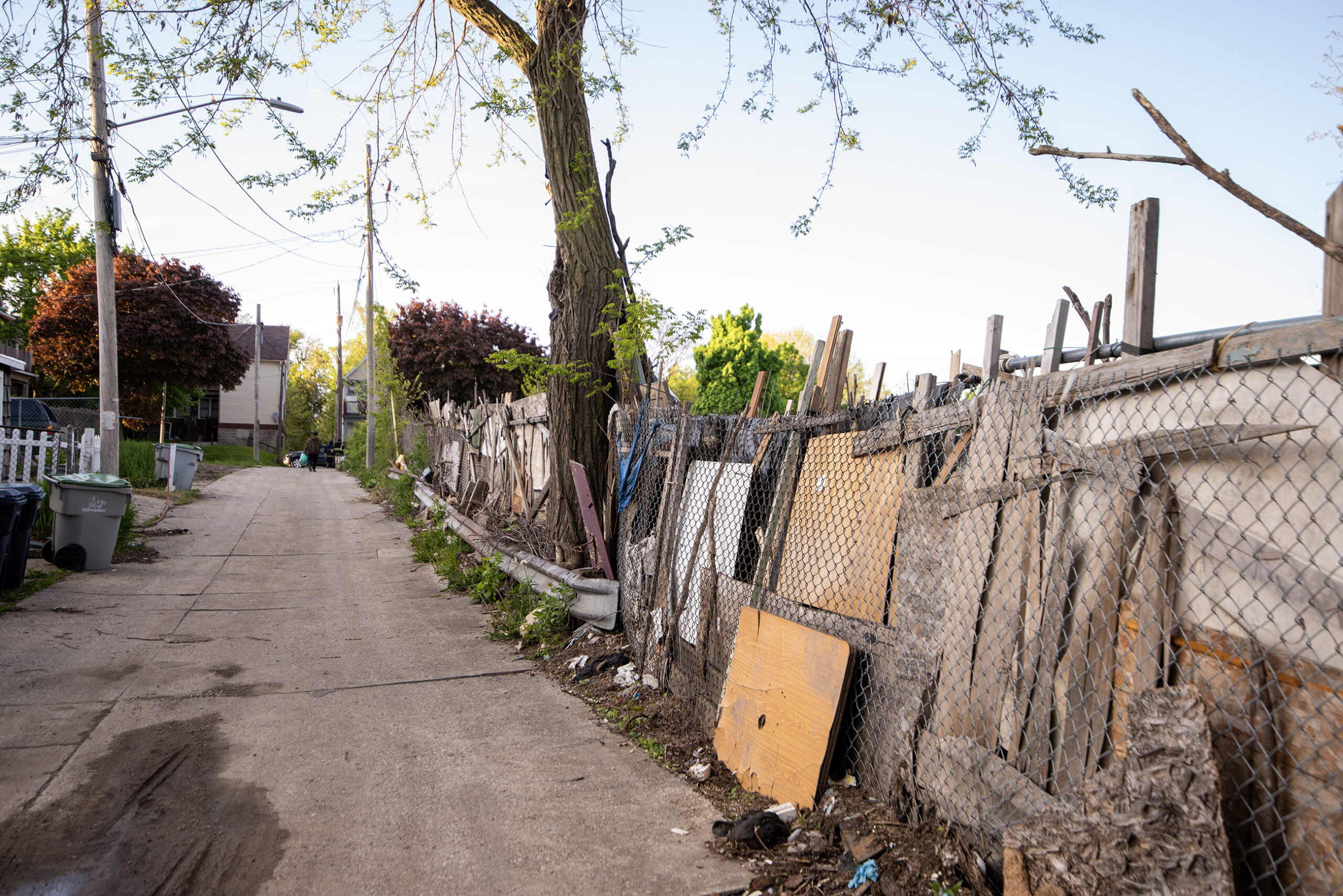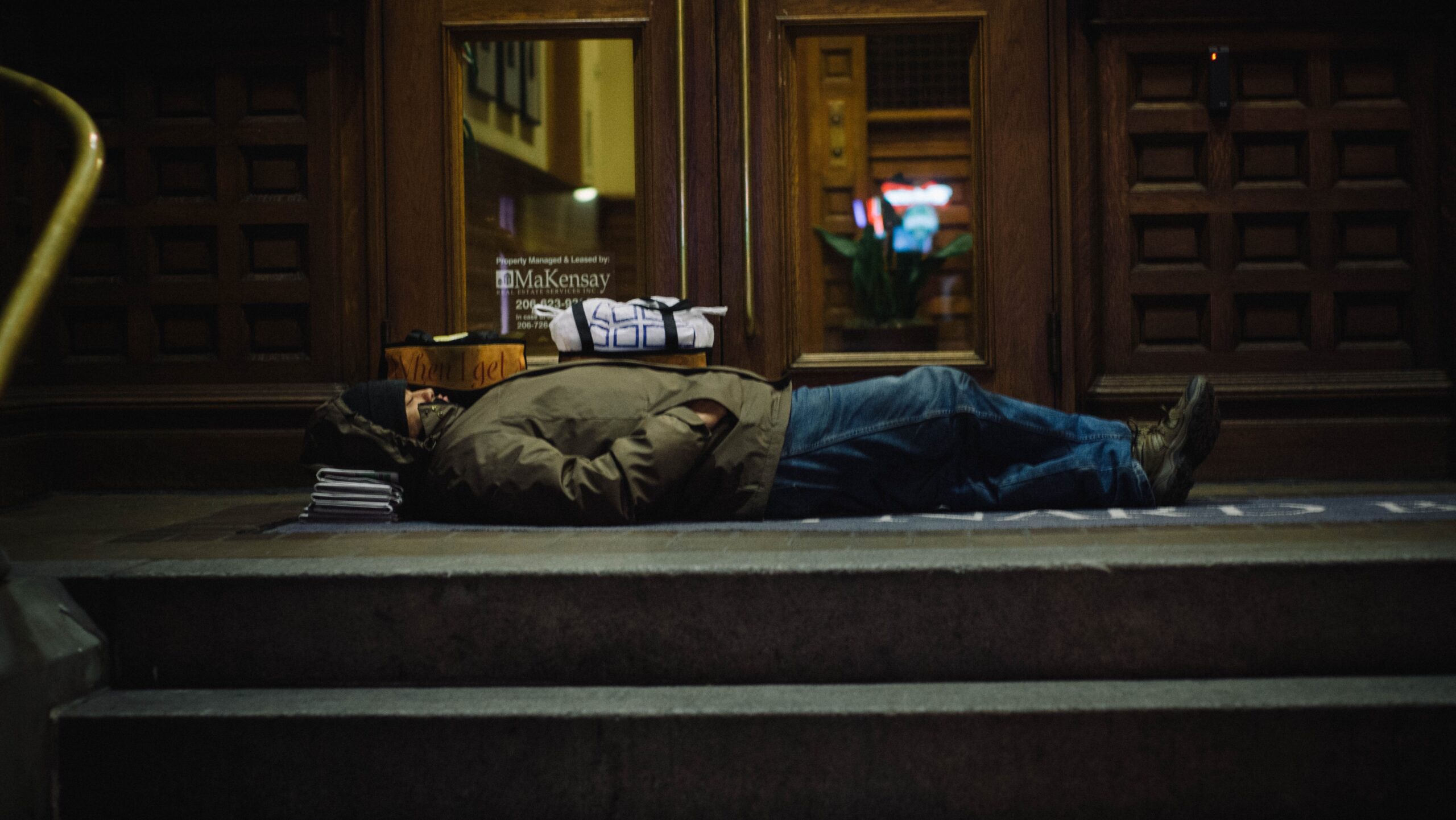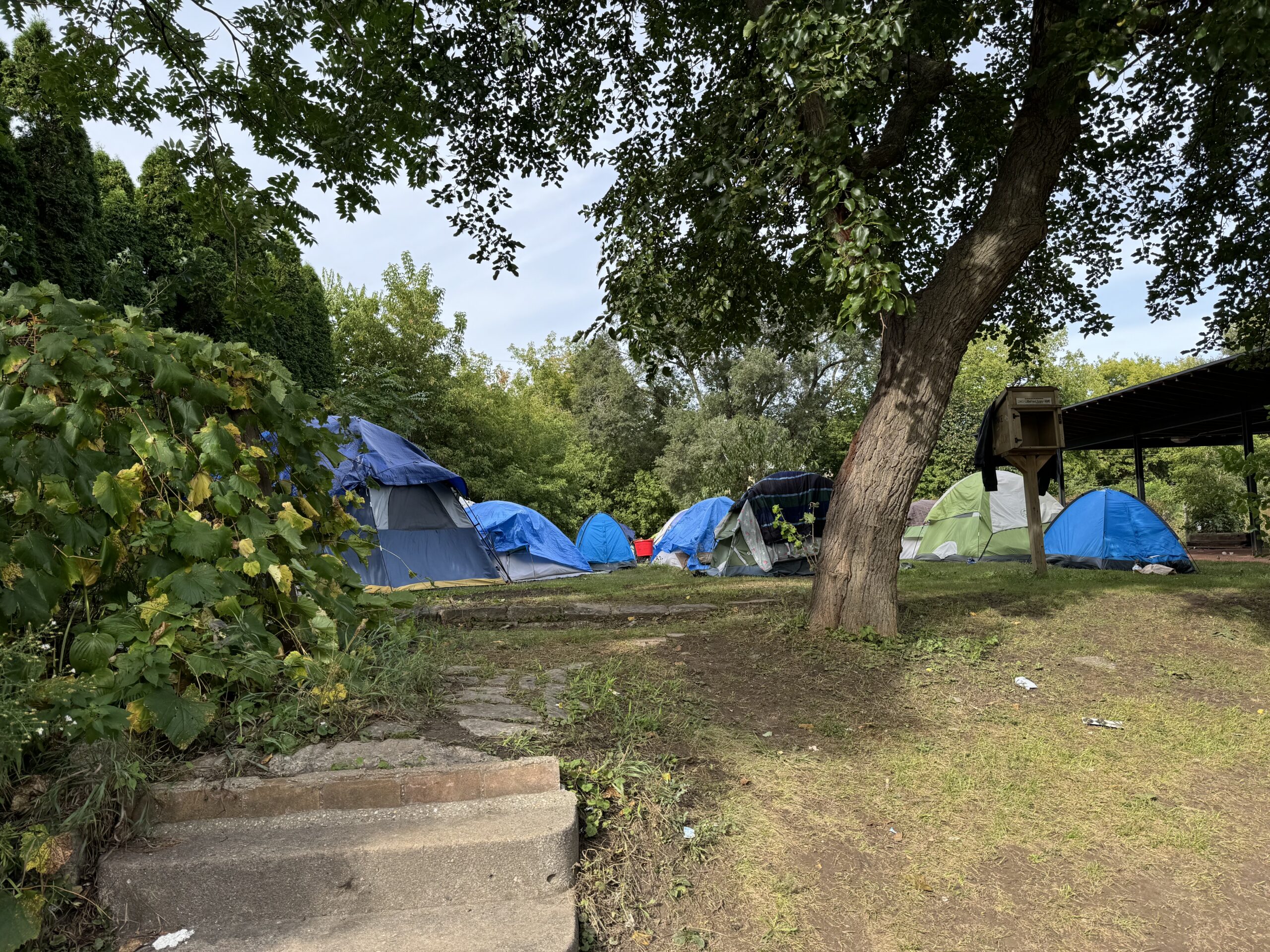Denver Mayor Mike Johnston, who campaigned on a pledge to end street homelessness in the city, has been struggling to make good on his promise since taking office in mid-July.
At a mid-November community meeting in a rec center gym the mood was tense, as neighbors expressed their concerns about his plans to house hundreds of people in hotels in this neighborhood.
“Adding 550 unhoused people into one district, where you can’t even get a cop to come out to your house, is very concerning for a single person,” one resident said.
Stay informed on the latest news
Sign up for WPR’s email newsletter.
“In this situation, trust has yet to be earned,” someone else added. “I want to know how these sites will be managed.”
Johnston has pledged to move 1,000 people out of sidewalk encampments and into supervised hotels and tiny home villages by year’s end. It’s a way to address the growing public health crisis, especially as winter sets in, and also answer the torrent of complaints he gets from housed residents about people living outside.
While most agree something needs to be done, Johnston’s gotten plenty of criticism at meetings like these. He’s been making the rounds to sell his plan.
“Hold on, hold on, we’re going to be respectful. We’re going to be respectful,” Johnston tells the crowd in a calming voice, channeling his past life as a teacher. “The most dangerous thing we can do for your neighborhood, and for the city and county of Denver, it is keep doing what we’ve been doing over the last five years, it is keep 2,000 people in unsanctioned, unstaffed, unsupervised, unsafe encampments all over the city.”
Denver is spending hundreds of millions of dollars on homelessness
The mayor set aside hundreds of millions of dollars to address housing insecurity and homelessness in his first budget. “Solving” homelessness was an ambitious goal on its own, and it’s only become more challenging as tens of thousands of migrants have come to Denver from the southwestern border in the last year.
“We do have a parallel crisis we’re managing right now around newcomers who have arrived to the city in the form of migrants,” he tells the crowd. “We have, right now, about 2,000 people who are in shelter.”
A few weeks earlier, Johnston visited a hotel that the city turned into a shelter during the pandemic. Over the last year, it’s been filled with people from countries like Venezuela and Columbia, who walked across Central America with kids and pets to try for better lives in the United States.
“I can’t fix all of the problems right now,” he says in Spanish to a crowd of people who’ve come to meet him in an old ballroom.
The mayor passed a long row of tents on his way in, inhabited by people who were staying in this hotel before the few weeks the city allows them expired, or they were kicked out for breaking rules (usually, bringing food inside the building). Johnston’s been getting heat over this encampment for weeks, particularly the dozens of children who were sleeping here in the cold. Their presence shocked some residents, who weren’t used to seeing little kids in camps like these, turning some into activists.
He invited most back inside during this visit, to try to push them towards work authorization. It’s something he’s been asking President Biden and Congress for help with.
“One of the things we found when I went to the White House,” he said, “is that we have significant numbers of people who have arrived in Denver who are eligible for work authorization and don’t know it.”
If people get jobs, they can figure out the rest, he said. It’s a strategy that reveals how little Johnston has to offer these people. The city’s spent millions of dollars on this crisis, but people keep coming.
“We know that there are not going to be enough hotel rooms for us to put everyone up indefinitely,” he added.
Genesis Daniel Perez was one of the parents who came to see the mayor. She, her parents and her children were staying in this hotel before their allotted month was up. They were living in a tent outside when Johnston arrived. Perez’s father had to make a trip to the hospital after they moved out of the hotel, she said, from exposure to a snowstorm. Many migrants have ended up in local emergency rooms in recent months.
“We just have to wait and continue sleeping on the streets, to see what the mayor is going to do for us,” she said after they left the ballroom. “At least they are trying to help us. But damn, the cold is tremendous.”
An army of moms, organized on Facebook, have been scrambling to provide clothes and food for families like hers. After they sounded the alarm, the city allowed parents with kids back into hotels after temperatures dropped, but many new arrivals continue to sleep in tents across town.
Tensions have been high, both over Johnston’s handling of migrants and his plans to shelter unhoused locals across town. Denver City Council members joined his chorus of critics in a recent meeting, when their mounting concerns finally came to a head.
Criticism mounting
“What became part of that conversation was a boilover of incidents happening within districts around migrants,” Council President Jamie Torres, said, “but then overall about how the emergency responses are being handled.”
The city has sheltered more than 30,000 newcomers since last year, when people began arriving by the busload. Officials failed to solidify a real plan for migrants when their numbers dropped significantly last summer, Torres said, before Johnston took office. And after he did, they weren’t ready when numbers shot up again.
“It’s still being treated with panic and reaction,” she added.
Busloads of migrants now arrive every day. Texas’ governor, Greg Abbot brags that he sent almost 8,000 people here, but Denver officials say they would still end up on the city’s streets without any political stunts. Torres says, like regular homelessness, this is a long-term issue, and the city needs to move beyond panic.
“They’ve got to get organized,” she said. “I think there are some within the administration who have been trying to do that.”
These crises are colliding, and the mayor knows he needs to nail solutions to both.
“They have different needs, different histories, but right now they’re getting commingled because the numbers are so overwhelming,” Johnston said. “We think the ability to set up successful programs for each of them increases our success at serving both of them.”
It’s not just his political future on the line. In an expensive housing market, flooded by need, thousands of people are hoping he’ll come through with safe, warm places for them to rest. Everyone is waiting to see what happens next.
9(MDAyMjQ1NTA4MDEyMjU5MTk3OTdlZmMzMQ004))
© Copyright 2025 by NPR. To see more, visit https://www.npr.org.9(MDAyMjQ1NTA4MDEyMjU5MTk3OTdlZmMzMQ004))

